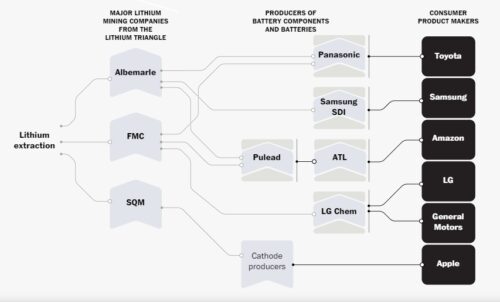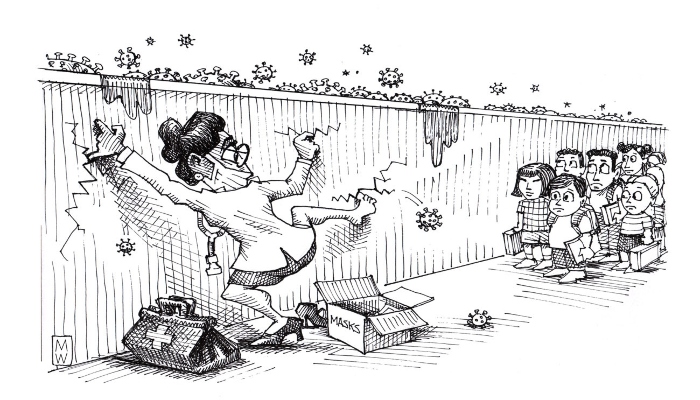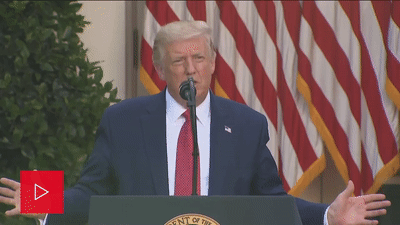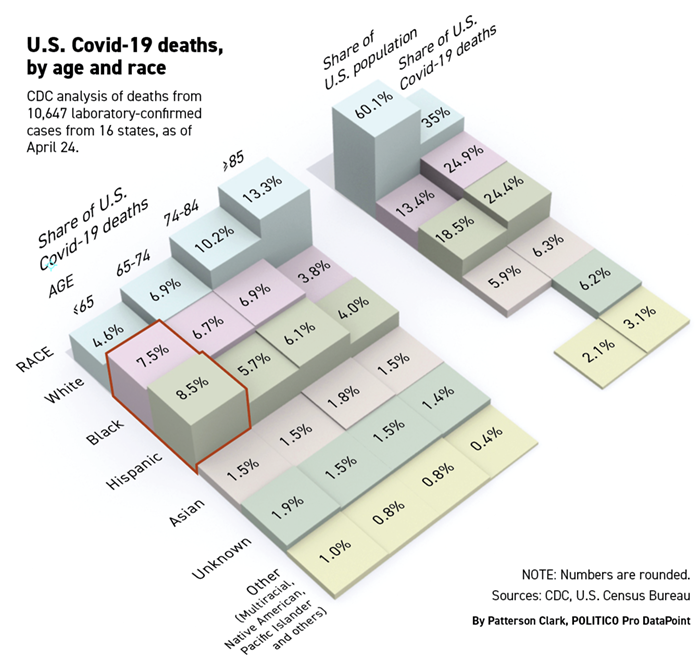Dear Friend,
The coronavirus pandemic is set to get “worse and worse” if countries do not stick to strict healthcare guidelines, the World Health Organization (WHO) has warned. The disease has already killed more than half-a-million globally.
If you think the contents of this news letter are critical for the dignified living and survival of humanity and other species on earth, please forward it to your friends and spread the word. It's time for humanity to come together as one family! You can subscribe to our news letter here http://www.countercurrents.org/news-letter/.
In Solidarity
Binu Mathew
Editor
Countercurrents.org
Coronavirus pandemic may get worse and worse and worse, warns WHO
by Countercurrents Collective
The coronavirus pandemic is set to get “worse and worse” if
countries do not stick to strict healthcare guidelines, the World Health Organization (WHO) has warned. The disease has already killed more than half-a-million globally.
The coronavirus pandemic is set to get “worse and worse” if countries do not stick to strict healthcare guidelines, the World Health Organization (WHO) has warned. The disease has already killed more than half-a-million globally.
Speaking on Monday during a press briefing from the WHO headquarters in Geneva via videolink, WHO chief Tedros Adhanom Ghebreyesus gave an alarming prognosis on the pandemic’s course.
Tedros said: “Let me be blunt. Too many countries are headed in the wrong direction, the virus remains public enemy number one. If basics are not followed, the only way this pandemic is going to go: it is going to get worse and worse.”
The grim prognosis comes after the WHO registered a record daily increase in active coronavirus cases worldwide since the beginning of the pandemic. On Sunday, the WHO registered some 230,370 new cases of the virus. The Covid-19 death rate remains steady, claiming around 5,000 lives on a daily basis.
The global coronavirus tally for confirmed infections has risen above the 13-million mark, according to Reuters’ figures for the pandemic. Over 560,000 people have succumbed to the disease. The US, Brazil and India remain the worst-hit nations, accounting for nearly a half of all cases.
WHO D-G’s opening remarks at the media briefing on July 13
Yesterday, 230,000 cases of COVID-19 were reported to WHO.
Almost 80% of those cases were reported from just 10 countries, and 50% come from just two countries.
Although the number of daily deaths remains relatively stable, there is a lot to be concerned about.
All countries are at risk of the virus, as you know, but not all countries have been affected in the same way.
There are roughly four situations playing out across the world at the moment.
The first situation is countries that were alert and aware – they prepared and responded rapidly and effectively to the first cases. As a result, they have so far avoided large outbreaks.
Several countries in the Mekong region, the Pacific, the Caribbean and Africa fit into that category.
Leaders of those countries took command of the emergency and communicated effectively with their populations about the measures that had to be taken.
They pursued a comprehensive strategy to find, isolate, test and care for cases, and to trace and quarantine contacts, and were able to suppress the virus.
The second situation is countries in which there was a major outbreak that was brought under control through a combination of strong leadership and populations adhering to key public health measures.
Many countries in Europe and elsewhere have demonstrated that it is possible to bring large outbreaks under control.
In both of these first two situations, where countries have effectively suppressed the virus, leaders are opening up their societies on a data-driven, step-by-step basis, with a comprehensive public health approach, backed by a strong health workforce and community buy-in.
The third situation we are seeing is countries that overcame the first peak of the outbreak, but having eased restrictions, are now struggling with new peaks and accelerating cases.
In several countries across the world, we are now seeing dangerous increases in cases, and hospital wards filling up again.
It would appear that many countries are losing gains made as proven measures to reduce risk are not implemented or followed.
The fourth situation is those countries that are in the intense transmission phase of their outbreak.
We are seeing this across the Americas, South Asia, and several countries in Africa.
The epicenter of the virus remains in the Americas, where more than 50% of the world’s cases have been recorded.
But we know from the first two situations that it is never too late to bring the virus under control, even if there has been explosive transmission.
In some cities and regions where transmission is intense, severe restrictions have been reinstated to bring the outbreak under control.
WHO is committed to working with all countries and all people to suppress transmission, reduce mortality, support communities to protect themselves and others, and support strong government leadership and coordination.
Let me blunt, too many countries are headed in the wrong direction.
The virus remains public enemy number one, but the actions of many governments and people do not reflect this.
The only aim of the virus is to find people to infect.
Mixed messages from leaders are undermining the most critical ingredient of any response: trust.
If governments do not clearly communicate with their citizens and roll out a comprehensive strategy focused on suppressing transmission and saving lives;
If populations do not follow the basic public health principles of physical distancing, hand washing, wearing masks, coughing etiquette and staying at home when sick;
If the basics are not followed, there is only one way this pandemic is going to go.
It is going to get worse and worse and worse.
But it does not have to be this way.
Every single leader, every single government and every single person can do their bit to break chains of transmission and end the collective suffering.
I am not saying it is easy; it is clearly not.
I know that many leaders are working in difficult circumstances.
I know that there are other health, economic, social and cultural challenges to weigh up.
Just today, the latest edition of the State of Food Security and Nutrition in the World was published, which estimates that almost 690 million people went hungry in 2019.
While it is too soon to assess the full impact of COVID-19, the report estimates that 130 million more people may face chronic hunger by the end of this year.
There are no shortcuts out of this pandemic.
We all hope there will be an effective vaccine, but we need to focus on using the tools we have now to suppress transmission and save lives.
We need to reach a sustainable situation where we have adequate control of this virus without shutting down our lives entirely, or lurching from lockdown to lockdown; which has a hugely detrimental impact on societies.
I want to be straight with you: there will be no return to the “old normal” for the foreseeable future.
But there is a roadmap to a situation where we can control the disease and get on with our lives.
But this is going to require three things:
First, a focus on reducing mortality and suppressing transmission.
Second, an empowered, engaged community that takes individual behavior measures in the interest of each other.
And third, we need strong government leadership and coordination of comprehensive strategies that are communicated clearly and consistently.
It can be done. It must be done. I have said it before and I will keep saying it.
No matter where a country is in its epidemic curve, it is never too late to take decisive action.
Implement the basics and work with community leaders and all stakeholders to deliver clear public health messages.
We were not prepared collectively, but we must use all the tools we have to bring this pandemic under control. And we need to do it right now.
Together, we must accelerate the science as quickly as possible, find joint solutions to COVID-19 and through solidarity build a cohesive global response.
Science, solutions and solidarity.
Almost 10 million children may never to return school after the pandemic
by Countercurrents Collective
The coronavirus pandemic has caused an “unprecedented education emergency” with up to 9.7 million children affected by school closures at risk of never going back to class, warned Save the Children Monday.
10 Reasons Why Defunding Police Should Lead to Defunding War
Co-Written by Medea Benjamin and Zoltán Grossman
The protests to “Defund the Police” have compelled Americans to see beyond police reform to a radical reconceiving of public safety. So, too, we need a radical reconceiving of our
national security in the slogan “Defund War.” If we find indiscriminate state violence in our streets appalling, we should feel similarly about state violence abroad, and call for divesting from both police and the Pentagon, and reinvesting those taxpayer dollars to rebuild communities at home and abroad.
India Is Well Into The Great Game
by Haider Abbas
China’s very successful foreign policy has been to entangle India with Pakistan and make India burn its resources on it and thereafter take-on to India as a surprise as this is what is happening.
The Politics Behind Changing Curriculum
by Damni Kain
Education is a right which each of us have but the government is trying to take it’s ‘ownership’ by controlling and dictating rules for it as per to their political propaganda. It is trying to own the minds of young
children by disengaging them from the very purpose of education. Their attempt to rule out spaces for questions is a red alarm for us to resist such attempts to restore democracy.
The Ravages of Lithium Extraction in Chile
by Yanis Iqbal
Amid this Coronavirus chaos, the Chilean lithium sector is poised to economically expand itself due to an anticipated increase in demand
In Chile, the Covid-19 pandemic is raging with an unprecedented speed. There are
more than 300,000 confirmed cases with one of the highest per capita infection rates of
13,000 cases for every 1 million people. The economy is severely experiencing the repercussions of Coronavirus-caused restrictions and the historically high national unemployment rate of
11.2% is an indicator of such damage. Chileans have took to the street to protest against the malfunctioning right-wing government of the
billionaire president Sebastian Pinera and the police force has responded aggressively by
shooting dead a young agitator.
Amid this Coronavirus chaos, the Chilean lithium sector is poised to economically expand itself due to an anticipated increase in demand. Albemarle, a North Carolina-based corporation and one of the two companies extracting lithium from the Chilean salt plain Salar de Atacama with Sociedad Química y Minera (SQM) or Chemical and Mining Society,
said that “the current slump in prices is belying a looming supply shortfall, especially as expansion projects are delayed by the crisis”. TDK, a Japanese multinational electronics companies and battery giant, predicts that the global market is going to witness a surge in demand for lithium. Shigenao Ishiguro, the CEO of the company,
told in an interview that “Digital transformation is a huge opportunity for us and I have no doubt that the coronavirus will push the world to go that direction at a faster pace,”.
In spite of Covid-19 pandemic, the battery market is expected to
grow “at a compound annual growth rate of about 7% during 2019-2024. The market in cathode for lithium ion batteries, the most common rechargeable car battery, is expected to jump to $58.8 billion by 2024 from $7 billion in 2018”. According to Bloomberg, the pandemic can prove to be an opportunity for the lithium market “with at least some governments, including those of Germany and France, using virus recovery funds to help accelerate a transition from internal combustion engines to battery-powered alternatives. France will offer about 8 billion euros ($9 billion) to its auto sector to bolster support for electric vehicles; Germany’s stimulus package includes about 5.6 billion euros for the sector and will require gas stations to install charging units.”
A likely intensification of lithium exploitation in Chile does not bode well for the working class and the myriad indigenous communities such as the Atacameños, Licanantay, Colla, Aymara and Quechua living in the Atacama desert. The most recent manifestation of the exploitative practices of lithium mining companies has been the maintenance of
“operational continuity” to
achieve a minimal impact on output. This basically translates into a policy of profit maximization, brutally indifferent towards the existential conditions of workers. In the lithium mining region of Antofagasta, the Coronavirus positivity rate was a stupendous
46.1%. Along with this sheer infliction of necropolitical violence upon the working class, the indigenous people are also reeling under the pressures of lithium extraction in the form of a
water crisis. While singular focus has been placed on the issues of water scarcity in urban areas, it is important to remember that indigenous communities living in Salar de Atacama too are coping with an acute water scarcity, artificially caused by lithium operations. In the aforementioned mining region,
65% of water has been consumed by lithium activities. This is one among the many environmental injuries sustained by the ecosystem of the Atacama desert due to the unhindered workings of lithium imperialism.
Instead of seeing the ongoing suppressive squeezing of the working class and indigenous communities in Chile as a one-off phenomenon, it is necessary that it be contextualized in the global structure of lithium imperialism. Lithium imperialism came to be installed as a fraction of global capital and primary commodity production due to two major developments – planetary mine and green extractivism. Firstly, planetary mine, as
said by Martin Arboleda, “designates a convoluted terrain where fences, walls, and militarized borders coexist with sprawling supply chains and complex infrastructures of connectivity.” This denotes the establishment of an extractive economic exoskeleton on a planetary scale through the simultaneous use of violent and militarized techniques of oppression and policing.
Secondly, green extractivism
refers to “the subordination of human rights and ecosystems to endless extraction in the name of “solving” climate change.” Lithium serves as an important modality for substituting fossil fuel extractivism with green extractivism and consistently maintaining a relentless system of commodification
. Instead of “tackling the systemic bloating of northern economies and the excessive demands this places on the world’s resources.”, green lithium extractivism allows capitalists to stabilize the unequal imperialist architecture of core-peripheral countries. Tesla, for examples, uses the discourse of electronic vehicles to cloak its
capitalistic carnage of Latin America with the cosmetic coverings of climate change.
Lithium imperialism indicates the cohesive amalgamation of planetary mining with a climate change-covered discourse of extractivism. The fusion of these two distinct strategies initiates a reign of hyper-exploitation, extraction, violence and dispossession in the name of climate change. But this oppressive underside of lithium business is sordidly shadowed by the propagandist puffery of an energy transition which actually feeds upon the body of oppressed workers of Global South. Lithium imperialism, therefore, involves the perpetuation of core-periphery relations under the discursive regime of climate change.
Chile is a victim of contemporary lithium imperialism due to the vast lithium reserves which it has. The country has
48% of the total lithium reserves in the world which amounts to 7.5 million tonnes of lithium, of which 6 million tonnes is found in Salar de Atacama. Chile is part of the lithium-rich area christened and commodified by the bourgeoisie as the “Lithium Triangle”. It is formed by northern Chile, northern Argentina and south Bolivia and has
70% of the world’s lithium brine deposits. Apart from the abundance of lithium, Chile is also
attractive for lithium neo-conquistadors “because it costs about $2,000 to $3,800 a ton to extract lithium from brine, compared with $4,000 to $6,000 a ton in Australia, where lithium is mined from rock.” Capital cost for exploration and construction is lower in brine extraction than hard rock extraction due to the
different locations of brine lakes and hard rock lithium reserves: “A hard rock project in a remote mountain location with limited access to transportation and energy infrastructure is going to require a lot more money in the exploration budget than a salar in flat terrain…with well-established mining roads and a line to the electrical grid.” In terms of
quality, Salar de Atacama “has the best quality reserves of lithium in terms of lithium to potassium concentration as well as low magnesium to lithium ratio.”
The low-cost and high-grade lithium brine deposits have spelled doom for the indigenous people living in the Atacama Salt Flats (AFSs). While lithium brine extraction is economically viable for capitalists, it has deleterious effects on water availability and is therefore, injurious to the social metabolism of indigenous communities. In
lithium brine extraction, “up to 95 per cent of the extracted brine water is lost to evaporation and not recovered”. Furthermore, to extract a ton of lithium from brine,
500,000 gallons of water is required. The two companies, Albemarle and SQM, operating in Salar de Atacama have been
given “licences to extract almost 2,000 litres of brine per second.” Besides brine water,
mining companies “need the fresh water to clean machinery and pipes, and also to produce an auxiliary product from the brine – potash – which is used as a fertiliser.” The use of fresh water by mining companies is indicated by the fact that between 2000 and 2015, the amount of water that was extracted from Atacama was
21% greater than the flow of water to that area.
According to a report produced by the Observatory of Mining Conflicts of Latin America (translated from Spanish), “The greatest socio-environmental impact of lithium mining lies in the indiscriminate expenditure of water for the evaporation of brines and the production of the necessary tasks. Considering that the Atacama salt flat is located in one of the most arid regions in the world, the Atacama desert, the large-scale extraction of water and the basic processing of lithium brines generates severe damage to the fragile ecosystems that depend on those sources.” In the same report, it is written that “the communities originating from the high Andean salt flats suffer serious environmental damage due to the indiscriminate and poorly controlled extraction from the hydro-saline deposits of the salt flats, thus reinforcing their historic place of marginalization, exploitation and subordination.”
This indicates that water scarcity is not a localized phenomenon, restricted to a mere depletion in water levels. Rather, water scarcity contributes to a
generalized impoverishment of indigenous people and drastically degrades their everyday living. Degeneration of existential conditions happens, inter alia, through the degradation of soil and vegetation covers. In the Atacama region, indigenous collectivities grow quinoa and look after llamas. For the growth of quinoa plants, an evenly moist soil is
required and for herding llamas, it is
necessary that there be an adequate vegetation cover on which they can feed. But lithium operations have undermined both these prerequisites and School of Sustainability at Arizona State University
reports that “An expansion of lithium brine mining area of one square kilometre was found to correspond to a significant decrease in the average level of vegetation and in soil moisture.”
Through the deliberate disorganization of traditional occupational configurations, lithium companies are able to culturally colonize and proletarianize the spiritual and agro-pastoral practices of communal indigeneity. In the international value chains of lithium, the utter subjugation of indigenous people to the deformed logics of e-mobility is cruelly concealed and as
said by the Plurinational Observatory of Andean Salares (translated from Spanish), “The incessant production of disposable electronic devices and the growing market for electric cars for the energy transition of countries in the global north…is becoming today the main threat to the subsistence of any form of life in the basins that host these [lithium] mining deposits”.
Chilean indigenous people have not acquiesced to the economically destructive and culturally catastrophic operations of mining corporations and have reacted strongly to lithium imperialism. In 2019, indigenous people
protested against the water-intensive mechanisms of lithium brine extraction and the state, in response, paradoxically
charged some communities for “water robbery”. The protests were initially triggered by the
underhand dealings of SQM in which “the Chilean economic development agency CORFO signed a contract with SQM that enabled the company to triple its lithium extraction over the coming years and extended its mining access to the Atacama until 2030.” The tripling of lithium extraction till 2030
raised SQM’s lithium extraction quota to 350,000 tons. It is not entirely coincidental that a month after the agreement, Eduardo Bitran, head of CORFO, met with Tesla to
propose “a project to Tesla in which SQM would provide brine, the raw material from which lithium is produced, to the carmaker for refining into battery component lithium hydroxide in Chile.”
It was in opposition to this intricate complex of lithium imperialism that indigenous people protested. These protests smoothly synchronized with the larger
anti-neoliberal protests occurring in Chile and bolstered the indigenous-working class alliance. But this working class-indigenous movement was soon suppressed by the Chilean state which, in order to stabilize neoliberalism and lithium imperialism, cracked down on protests through rapid detentions, declaration of a state of emergency and the deployment of more than 9,000 soldiers. Because of the protection provided by the state, Ricardo Ramos, the CEO of SQM, was able to
say that the protests won’t “be a strong issue in our business goals in the medium and long term.” He further
added that “We are going to deliver our products to our customers according to our previous forecast despite the situation in Chile,”. From Ramos’s statement, we discern that there exists a structural arrangement for the cementing of lithium imperialism: companies like SQM economically exploit and culturally hegemonize lithium-rich areas; indigenous people combatively confront the predatory mechanisms of these companies; the Chilean state ultimately intervenes in order to regularize mining operations through the violent deactivation of protests.
While it may seem that the 2019 protest against lithium extraction was a spontaneous eruption of anger, it is necessary that we briefly examine the historical background against which it took place. Apart from signing a shady deal without any consultation,
SQM “has been investigated for several cases of tax evasion, money laundering and illegal campaign-funding. In a major public scandal in 2014, politicians from across the spectrum were found to have received major sums of money to look after the company’s interests.” SQM also has a dubious distinction of causing major conflicts and in
2007, for example, there was a skirmish between the company and the Toconao community. Increased extraction of water from unauthorized wells and the contamination of water sources by sewage discharge were the contributory causes behind the SQM-Toconao conflict. Albemarle too has been progressing in its march towards class struggle-free lithium imperialism and in 2017 CORFO
amended the corporation’s agreement through which Albemarle got “sufficient lithium to produce over 80,000 MT annually of technical and battery grade lithium salts over the next 27 years at its expanding battery grade manufacturing facilities in La Negra, Antofagasta.”
The rapid ramping up of lithium production by two companies in Chile has successfully benefitted major electronic companies such as Samsung, Apple and Panasonic. In the automobile sector, Toyota, General Motors, Tesla, Volkswagen and BMW are some of the companies reaping economic advantages of the lithium sources of Chile. Figure 1 and 2 depict the multiplex and labyrinthine circuit of lithium in the international market. To satiate the vampire-like thirst of different companies for lithium, there has been a global increase in production and the role of Chile in catering to the lithium hunger of “white gold rush” is indicated by the
contemporaneous expansion of Chilean lithium output with world lithium output: “The value of Chile’s lithium carbonate production rose to US$200 million by 2007, to US$500 million by 2012 and to more than US$800 million by 2017. It exceeded US$1 billion in 2018. There was a parallel surge in the value of world first-stage lithium output— reaching US$484 million in 2007, US$998 million by 2013 and US$2865 million in 2017.”


With the demand for lithium
expected to grow in the global market, indigenous people and the working class would start encountering greater difficulties in sustaining themselves as indigenous ecosystems are efficiently eradicated and labor productivity is ruthlessly increased. During the
Fastmarkets’ 11th Lithium Supply and Markets Conference in Santiago, “Producers Albemarle, SQM and Tianqi [which has a 23.77% stake in SQM]… agreed that flexibility in production remains vital for addressing diverse industrial and technological challenges.” This was a colloquial way of saying that workers need to be ready to be exploited, discarded and denigrated as mere commodities. For the indigenous people in Chile, life would be wrung economically dry as energy transition occurs in the Global North and magnificent Tesla vehicles silently operate on their blood-stained lithium batteries.
We need to remember that this dystopia of EVs parasitically procuring lithium from the open veins of Chile is avoidable and as
said by Thea Riofrancos, “A world buzzing with hundreds of millions of Teslas (or worse, e-Escalades), made with materials rapaciously extracted without the consent of local communities, manufactured under a repressive labor regime in polluting factories — in other words, a world not unlike our own, but powered by wind and sun — is not an inevitability.” To move away from such lithium imperialism, we need to listen to the smothered voices of the Global South. An economic-ecological model based upon the anti-imperialist foundations of the Global South is radically different from capitalist models of extraction.
Instead of conceptualizing a “development alternative”, the oppressed masses of the Global South imagine an “alternative to development”. In the interstices of this “alternative to development”, one can locate the seeds of resistance to lithium imperialism.
Yanis Iqbal is a student and freelance writer based in Aligarh, India.
Tsundoku
by Bilal Ahmad Dar
We have people who have the habit of buying books every day. Most of the people buy books. They pile them up and leave them on the shelf without reading. This habit of buying books and leaving them without reading is known as ‘Tsundoku’.
Violence Against Christians Spreads To 50% of Indian States, 95 Incidents of Mob Violence So Far in India
by Press Release
The Covid-19 pandemic and the ensuing lockdown does not appear to have brought much relief to Indian citizens following the Christian faith. The first half of this year has so far witnessed 121 incidents of violence against Christians in 15 states of India as per the recorded data of New Delhi based United Christian Forum (UCF).
The Economics of Reservation and the Dysfunctional Question of Representation: Contextualizing the Exclusion of OBC’s
by Arun Kumar Kushwaha
Overlooking the partial move, the rubber stamp institution of National Commission for Backward Classes (NCBC) gave its nod for the central government’s appointed B. P. Sharma committee recommendations for incorporating
the salary and the farm income while calculating the creamy layer within the OBC category
The virus may kill, but your problems are man-made
by Avneet Singh
We are too focused on the temporary immediate problem caused by the virus and don’t pay any attention to deeper, and more dangerous long-term systemic problems. We have to fix them before the next round of global crisis hits us as our underlying socio-economic-political problems delay recovery.
UAPA- Sword against dissent
Co-Written by Saumya and Harsh Kumar
The unlawful activities prevention amendment bill 2019 seeks to amend unlawful activities prevention act of 1967, a contentious bill is controversial since its inception. The recent amendment in 2019 adds two noteworthy elements to the law which subvert the edifice of Indian federal system and Human rights
How
not to be a leader like Mr Narendra Modi
by Bhabani Shankar Nayak
Modi and his ideological mentors in RSS will destroy the founding principles of India as a republic. The social and religious harmony, secular political culture and economic progress are three immediate casualties of Modi led BJP government in India. Such a disastrous trajectory bound to fail in long run due to ignorance and arrogance of leadership.
COVID-19 has exposed the vulnerability of Journalists in India
by Syed Ali Mujtaba
No doubt the media professional should be cautious and careful in safeguarding themselves and their families from the pandemic, but the onus of protecting journalists lies with the government.
Pray for Bachchan But Free The People’s Poet Varavara Rao
by Gurpreet Singh
Unlike Bachchan, who has largely remained indifferent to the ongoing repression of religious minorities in India, individuals like Rao haven been putting their lives at risk for the rights of ordinary people. It’s time to stand up for real and not fake celluloid heroes.
The Grammar of Galwan
by Murtaza Shibli
The word galwan has given us an oft-used idiom, galwanus gurr karun hawala, which means entrusting horse to a horse thief. It conjures up a situation of utter helplessness when one cannot save or salvage a thing or a situation.













